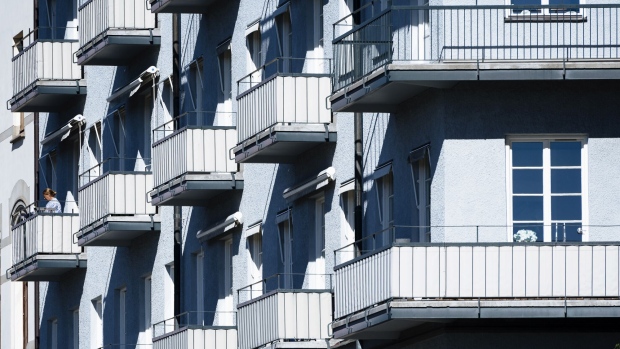May 27, 2023
Swedish Landlord SBB Gets Second Junk Rating as Crisis Worsens
, Bloomberg News

(Bloomberg) -- Pressure is mounting on the landlord at the center of Sweden’s property crisis after the company’s credit rating was downgraded to junk for a second time.
SBB — as Samhallsbyggnadsbolaget i Norden AB is more commonly known — has already suffered a tumultuous month after losing its investment grade rating from S&P Global Ratings on May 8. The cut sparked a sharp selloff in the shares and led to the company postponing its dividend and scrapping an emergency rights issue.
Now Fitch Ratings has made a similar move, lowering its rating on the landlord one step, to BB+. The ratings agency cited high debt leverage and “material upcoming bond maturities in 2023 and 2024” as some of the grounds for its decision, released after the market close on Friday.
The decision will likely exacerbate selling pressure on SBB’s bonds at a time when the company urgently needs to tackle an $8 billion debt pile to restore investor confidence. With its bond yields, and hence borrowing costs, climbing to ever more unaffordable levels, the capital markets have all but closed for the Stockholm-based company.
Read More: The Face of Sweden’s Property Bust Fights for $13 Billion Empire
Adding further pressure will be SBB’s ejection from investment grade indexes. While the company’s debt is already trading at heavily distressed levels — its euro notes due in 2025 closed at a price of 76.5 on Friday — the bonds will no longer be eligible for many funds, forcing some investors to hit the sell the button.
Without the option to roll over its debt on the bond market, SBB faces a narrowing list of choices: it can attempt to raise capital at severely discounted levels; divest properties at fire-sale prices and put valuations at risk; or sell a stake in the company to an outside investor.
Efforts by the company to sell assets and get its debt under control haven’t gone far enough, according to Fitch. The postponed dividend “will provide a temporary liquidity boost, but not lead to sustained deleveraging,” Fitch said as it placed the new rating on a negative outlook.
Moreover, SBB’s “current financial constraints stem from receiving forms of deferred payments for assets devolved from the group, rather than immediate cash proceeds to deleverage,” it said.
That uncertainty continues to weigh on the share price, which is down more than 90% from a peak toward the end of 2021. On Friday, the stock closed at 4.9 Swedish kronor ($0.45) per share, its lowest level in nearly six years.
©2023 Bloomberg L.P.






